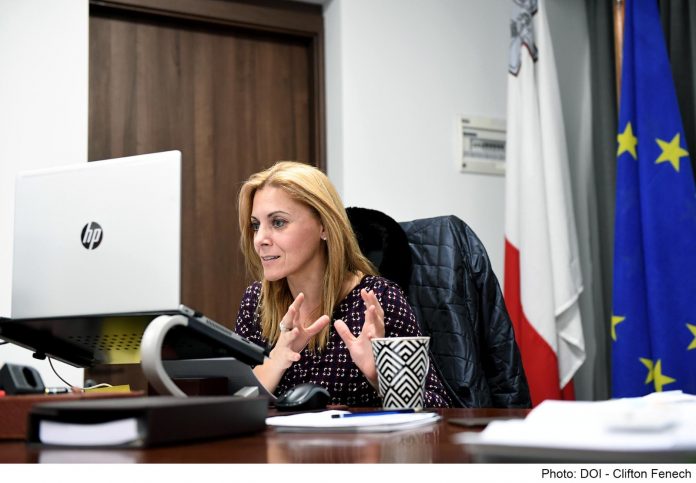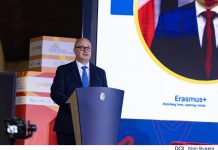Each year, the Directorate of Digital Literacy and Transversal Skills within the Ministry for Education organizes the Embed Digital Literacy Awards as a show of appreciation for the exemplary work that can serve as a model in teaching in digital world. This year, due to the pandemic restrictions, the event was held for the first time on a digital platform.
At the opening of the event, Minister for Education Justyne Caruana said, “Strengthening digital literacy among young students needs to be a key element in exploiting the future opportunities created by the digital transition”.
Minister Caruana said that with the closure of schools during the extraordinary circumstances brought about by Covid-19, the need for digital education was unprecedented and educators had to resort to online lessons. The use of online platforms and other learning tools brought challenges but with the educators’ skills and dedication, these challenges were not only overcome but changed into opportunities for the benefit of our students.
Minister Caruana said that on Friday she participated in the Informal Ministerial Meeting for Education Ministers of the EU, during which she spoke about one of the priorities for Malta—the strengthening of digital literacy among young students, which needs to be a key element in exploiting future opportunities created by the digital transition.
At this meeting she said that she is proud that as a country we have been at the forefront of introducing systems and practices in the education sector—including the one tablet per child initiative which provides every student with a free tablet in the fourth year of primary school. This made it possible to integrate digital tools within education systems. This measure also made it possible for a smooth transition to online learning during the months when schools were closed during the pandemic.
As Minister Caruana said during the Informal Ministerial Meeting for Education Ministers of the UE, we need to think on a longterm basis in view of the current challenges posed by the ongoing Covid-19 crisis and the need to ensure with our green and digital transitions, it is essential that we revisit the role which education and training should play through the European Pillar of Social Rights for a more equal European social model.
She reminded that a National Strategy for Digital Education and Transversal Skills targeting students, educators, parents/guardians and citizens is currently being drawn by the Ministry for Education.
Linked to the digital work done during these months, the Directorate of Digital Literacy and Transversal Skills, decided to celebrate good pedagogical practices both before and after school closure. Educators were invited to submit initiatives based on a number of experiences and activities related to teaching through technology.
Through the projects submitted, it was clear that technology improved teaching and learning as without this tool, learning objectives would have been more difficult to achieve. Educators used technology to make learning more effective and thus offered experiences that could not have been achieved by other means.
The Minister for Education said that through similar projects we are encouraging pedagogical innovation, integration into the curriculum in a way relevant to digital literacy, as well as seeing that this initiative should serve as a stimulus for development or improvement in the school community.
She congratulated all participants and encouraged them to build on this experience and share their work with fellow educators, not only to learn from each other but also for the benefit of our children.










